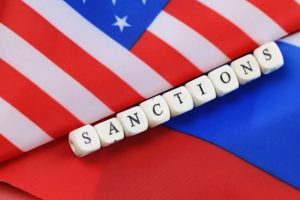Is the Russian Aluminum Giant Rusal Off the Hook?
Reading like Tolstoy’s “War and Peace,” an epic article in The New York Times explores the background and history of Oleg Deripaska’s battle to initially gain acceptance in the West and, later, to save his companies — notably Rusal and its holding company En+ — from potentially bankrupting U.S. sanctions.
Buying Aluminum in 2019? Download MetalMiner’s free annual price outlook
What comes across strongly from the article, whether you necessarily feel The New York Times has a political point to make or not, is that acceptance in Western capitals and among the Western business elite can be bought via lobbyist and media firms.
Deripaska has spent tens of millions over the last few years trying to buy his way into a position where he is recognized as a respectable businessman and reputable member of the global business community. To its credit, Washington has been the standout obstacle to his campaign to gain visa-free travel and recognition.
While U.S. lobbyists, senators and businessmen have been paid millions on his behalf, successive administrations of both political hues have resisted the pressure to give him unfettered acceptance.
At heart, this is down to deep misgivings about how he came about his vast aluminum empire, his reported links to organized crime and his undoubted closeness to the current Putin administration.
While the details of Deripaska’s reportedly sordid past make interesting reading, into which The New York Times goes into considerable detail, of more interest to our readers is the likely fate of sanctions against Rusal and any minority shareholdings En+ holds in other downstream aluminum companies (which have been causing no end of problems this year, disrupting aluminum supplies and causing price volatility).
The upshot of The New York Times’ view is that the successful hiring of an army of lobbyists and repeated delays in applying the threatened sanctions points to the probability they will never be applied.
The current, several times postponed, end date is Dec. 12, but both the market and political observers are of the view this date too will pass without any sanctions being applied, despite the fact Deripaska has not sold down his shareholding in En+ or relinquished real control of his aluminum (and nickel) empire.
For aluminum consumers, that is good news — we don’t need to remind anyone of the price spike earlier this year that resulted from the initial announcement of the sanctions.
The aluminum price is currently languishing below the level it was prior to the sanctions announcement and subsequent price spike, suggesting the market is totally sanguine about any chance of sanctions actually being applied. The resulting disruption to the supply chain following the announcement of sanctions seems to have sent a reality check to Washington that has been heeded and every effort has been pursued to reach a compromise of saving face while also avoiding a repeat.
Want to see an Aluminum Price forecast? Take a free trial!
The chances are “sufficient evidence” will be found that Deripaska has stepped back from day-to- day control to justify a shift of focus from En+ and Rusal as investment vehicles to Deripaska as an individual.
In a tight aluminum market, that’s just what consumers will be looking to hear.



One Comment
I think a high possibly exists with current political makeup in WASH. DC, that sanctions are imposed soon since DERIPASKA is still the biggest shareholder owner, and together with VEKSELBERG, another sanctioned Russian who owns 9% , they are too closely supporters of PUTIN. The consumers in USA unfortunately, will suffer with even higher prices, which are compounded by 10% tariffs (thanks to CENTURY Aluminum’s efforts and lobbying ) which already make aluminum here the highest priced globally. As a former RUSAL Sales Director / SR. Trader, (retired) I think the firm is going to be unable to overcome the Treasury & State Dept. efforts.